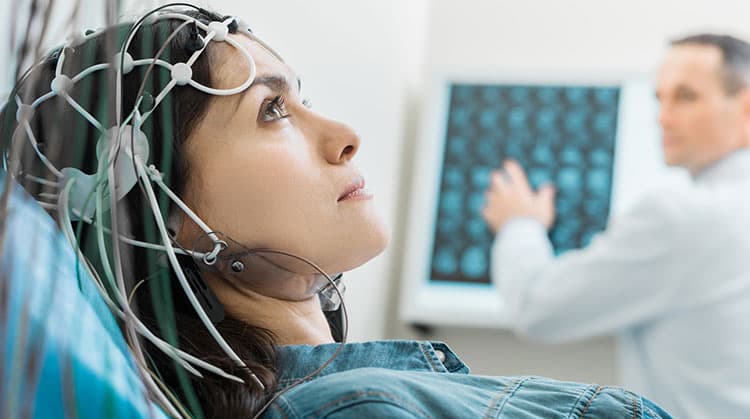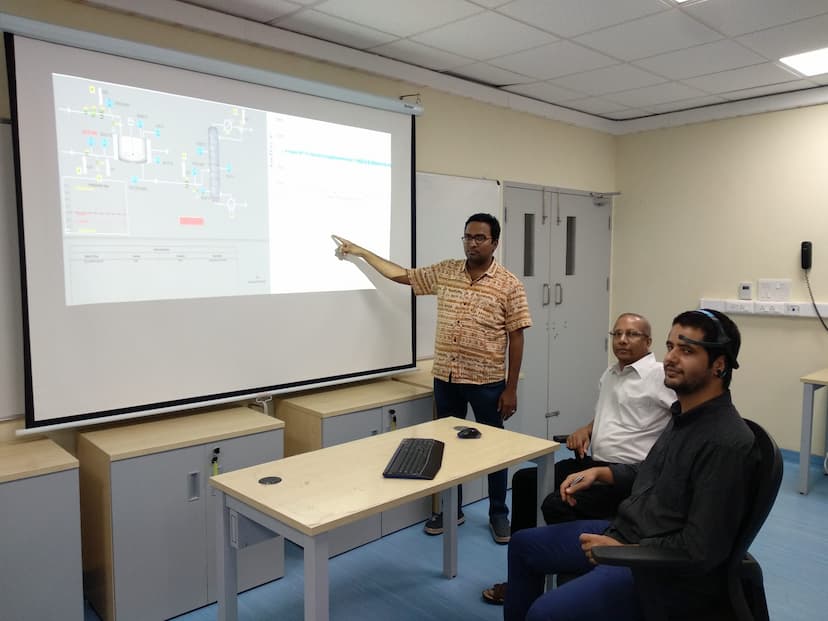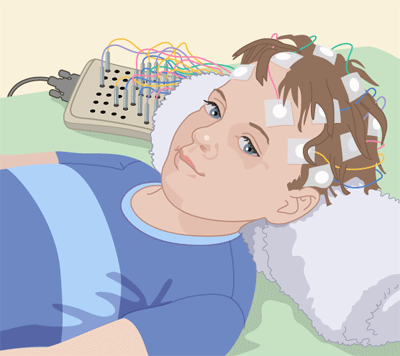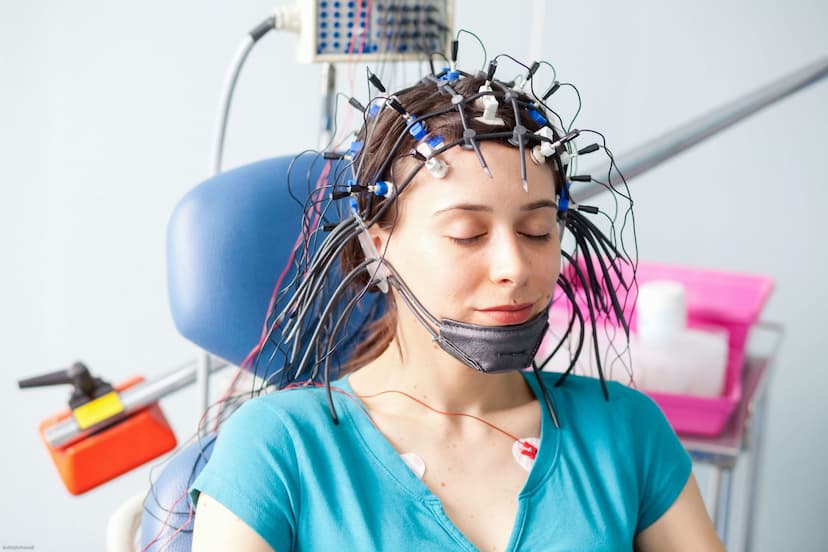EEG used to track great human performance during crisis

EEG used to track great human performance during crisis – Researchers at IIT Madras have found that Electro Encephelogram (EEG) can also be used to measure brainwaves in workers to assess their mental sharpness, especially during the time of crisis.
EEG involves placing sensors on the scalp of the subject and measuring brain wave activity.


The cognitive workload is the level of measurable mental effort that is expended by an individual to perform a task.
High cognitive workload state of workers makes them prone to commit errors that can lead to accidents.
The research with regards to this aspect of EEG was done by a team led by Professor Rajagopalan Srinivasan, Department of Chemical Engineering, IIT Madras.

The results of this research about EEG have been published recently in the reputed peer-reviewed Journal of Computers and Computer Engineering in a paper co-authored by Professor Rajagopalan Srinivasan, Mr. Mohd Umair Iqbal and Professor Babji Srinivasan.
Speaking the need of this reasearch on EEG Prof. Rajagopalan Srinivasan said human errors are the cause of nearly 70 per cent of industrial accidents, the world over.

Human errors, whether at the planning or execution stage, depend not only on the skill of the worker but also on his/her mental state and sharpness at that time.
Anybody’s performance will become error-prone if there is a mismatch between the demands of the task which the person is responsible and their ability at that moment to handle it.
Such a mismatch leads to high cognitive workload in human operators, often a precursor to poor performance, said Rajagopalan.
EEG used to track great human performance during crisis

;All our thoughts and activities are driven by electrical signals between the cells in our brain called brain waves, which occur at different frequencies and are called alpha, beta, gamma, theta and delta.’
The relative magnitudes of these waves along with their variation are a signature of our thought process and current mental state, he said.
The research on EEG, the team affixed sensors to the heads of six participants and had them perform eight tasks each.
The nature of the tasks was to monitor a typical industrial section for any disturbances which if not controlled, by the participant, in a given time frame can lead to accidents.

The disturbance increased their cognitive workload, and only if the correct decision was made did the cognitive workload reduce.
EEG used to track great human performance during crisis
The results on the reasearch about EEG showed that theta waves could identify any mismatch between the worker’s mental model of the process and the actual plant behaviour during abnormal situations.
This makes sense because the ‘theta band’ of brainwaves has been thought to be responsible for the control process of working memory functions.

‘We intend to study the potential of these EEG methods to improve human performance in various high-risk industries, thus opening a new paradigm to industrial safety and its relation to the real-time mental state of the worker,’ said Professor Rajagopalan.
The EEG based approach can provide information about the cognitive workload of operators during training, which in turn can be used to fine-tune the training process itself.
It can also provide targeted cues during learning, to improve the overall effectiveness of training.
Indian Institute of Technology Madras (IITM) was established in 1959 by the Government of India as an ‘Institute of National Importance.’
The activities of the Institute in various fields of Science and Technology are carried out in 16 academic departments and several advanced interdisciplinary research academic centres.
The Institute offers undergraduate and postgraduate programmes leading to B.Tech., M.Sc., M.B.A., M.Tech., M.S., and Ph.D., degrees in a variety of specialisations.
IIT M is a residential institute with more than 580 faculty and 9,500 students. Students from 18 countries are enrolled here.
IITM fosters an active entrepreneurial culture with strong curricular support and through the IITM Incubation Cell.
IITM has been ranked No.1 in the ‘Overall’ Category for the second consecutive year in India Ranking 2020 released by National Institutional Ranking Framework, Ministry of Education, Govt. of India.
The Institute has also been ranked No.1 in the ‘Engineering Institutions’ category in the same Rankings for five consecutive years – 2016, 2017, 2018, 2019 and 2020.
It was also adjudged as the ‘Top innovative Institution’ in the country in Atal Ranking of Institutions on Innovation Achievements (ARIIA) in 2019 and 2020. ARIIA Ranking was launched by Innovation Cell of Ministry of Education.
S Vishnu Sharmaa now works with collegechalo.com in the news team. His work involves writing articles related to the education sector in India with a keen focus on higher education issues. Journalism has always been a passion for him. He has more than 10 years of enriching experience with various media organizations like Eenadu, Webdunia, News Today, Infodea. He also has a strong interest in writing about defence and railway related issues.







